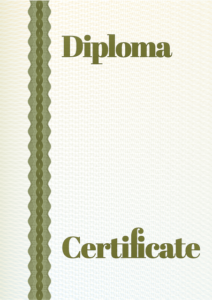Optimizing Translation Services for Impactful UK Scientific Posters
Translation services for UK Scientific Posters play a critical role in ensuring that scientific findings from British research communities are accurately and effectively communicated to international audiences. These services address the challenges o…….

Translation services for UK Scientific Posters play a critical role in ensuring that scientific findings from British research communities are accurately and effectively communicated to international audiences. These services address the challenges of precise and clear translations, including the adaptation of British vernacular and scientific terminology into languages that diverse global audiences can understand while maintaining the original intent and context. Expert linguists with scientific knowledge are essential for this task, as they navigate through complex concepts, idiomatic expressions, and cultural subtleties to present data accurately in graphs, figures, and symbols. These translators also ensure consistency in specialized terminology across different sessions and posters, conform to UK conventions in measurement units and reporting styles, and implement quality control measures to prevent misunderstandings or information loss. By doing so, translation services enable UK research to be shared globally with clarity and precision, fostering international collaboration and enhancing the global impact of the nation's scientific contributions.
In the multifaceted realm of scientific discourse, the precision of communication is paramount. For researchers and academics seeking to engage with their UK counterparts, the translatability of scientific posters becomes a critical test. This article delves into the pivotal role of translation services for UK Scientific Posters, examining the nuances and challenges inherent in conveying complex concepts accurately. We explore the necessity of precise linguistic transfer, the key considerations when targeting a UK audience, and the intricacies involved in translating scientific terminology. Through an analysis of different translation modalities and case studies highlighting successful translations, we aim to provide insights that ensure scientific posters resonate with UK audiences.
- Understanding the Necessity of Accurate Translation for UK Scientific Posters
- The Role of Professional Translation Services in Scientific Communication
- Key Considerations When Translating Scientific Content for a UK Audience
- Challenges and Solutions in Translating Complex Scientific Terminology
- Evaluating the Effectiveness of Different Translation Modalities for Posters
- Case Studies: Successful Translations of Scientific Posters for UK Events
Understanding the Necessity of Accurate Translation for UK Scientific Posters

In the dynamic realm of scientific research, the dissemination of findings through posters is a critical component of communication among researchers and stakeholders. For UK scientific events, the precision and clarity of translated materials, particularly for an international audience, are paramount. Utilizing professional translation services for UK Scientific Posters ensures that complex terminology and nuanced data are accurately conveyed in the target language. This is essential when considering the multilingual nature of many scientific conferences where participants come from diverse linguistic backgrounds. Accurate translations not only facilitate a deeper understanding of the research but also demonstrate respect for attendees’ native languages, thereby fostering inclusivity and engagement. The fidelity of the translation process is key to maintaining the integrity of the original content, which includes not only textual information but also graphical elements like charts, figures, and symbols that must be correctly interpreted across language barriers. Employing expert linguists who specialize in scientific fields guarantees that all posters are rendered with both technical accuracy and cultural sensitivity, ensuring that UK-based research reaches a global audience without loss of meaning or context.
The Role of Professional Translation Services in Scientific Communication

When disseminating scientific research, clarity and precision are paramount. For researchers aiming to present their findings at UK scientific events, the role of professional translation services for UK scientific posters becomes pivotal, particularly when the audience or collaborators are international. These services ensure that the complex language and specialized terminology within scientific posters are accurately conveyed across different linguistic barriers. The translation process is not merely a matter of substituting words from one language to another; it requires a deep understanding of scientific concepts, idiomatic nuances, and cultural contexts to maintain the integrity of the research.
Professional translation services specializing in scientific communication offer more than just linguistic equivalence; they provide a bridge that connects diverse communities of scientists, facilitating knowledge exchange and collaboration. By leveraging the expertise of seasoned translators who are well-versed in both the source and target languages as well as the scientific domain, these services enable researchers to reach a broader audience without compromising on the quality or comprehensibility of their scientific posters. This not only enhances the impact of the research but also showcases the UK’s scientific prowess on the global stage.
Key Considerations When Translating Scientific Content for a UK Audience

When translating scientific content for a UK audience, it is imperative to consider the nuances of language and cultural context that are specific to British scientists and attendees. The translation services for UK Scientific Posters should not merely convey the information accurately but also resonate with the local scientific community’s understanding and expectations. One key aspect is the use of terminology; scientific concepts often have widely accepted terms within the international scientific community, which may not directly translate into English used in the UK. Therefore, it is essential to employ translators who are not only linguistically adept but also familiar with the scientific jargon and the context in which these terms are used.
Another critical consideration is the cultural sensitivity and awareness of idiomatic expressions that may be lost or misconstrued in translation. This is particularly important when interpreting graphs, figures, and other visual elements that accompany scientific posters. The translation must ensure that all data visualizations are clear and maintain their integrity across different languages. Additionally, the translation should adhere to the UK’s conventions for units of measurement, date formats, and report writing style. By addressing these considerations, translation services for UK Scientific Posters can effectively bridge the communication gap between international scientists and UK-based peers, facilitating a seamless exchange of knowledge and innovation.
Challenges and Solutions in Translating Complex Scientific Terminology

Navigating the intricacies of scientific terminology presents a unique set of challenges when translating posters for UK scientific events. The complexity arises from the specialized vocabulary and technical jargon inherent in scientific communication, which often lacks direct equivalents in other languages. This can lead to misunderstandings or loss of critical information if not handled with expertise. To mitigate these issues, it is imperative to engage with translation services that specialize in UK scientific poster translations. These specialized services deploy translators well-versed in the nuances of both the source and target languages, as well as the scientific discipline in question. They employ rigorous quality control processes to ensure that all technical terms are accurately conveyed, maintaining the integrity of the original content. Additionally, these services often provide a glossary of terms to facilitate a consistent translation across different posters and sessions. By leveraging such translation services for UK Scientific Posters, organizations can bridge language barriers, enabling international collaboration and broader dissemination of scientific research, without compromise on accuracy or precision. This not only enhances the global understanding of UK scientific endeavors but also underscores the importance of professional translation in the scientific community.
Evaluating the Effectiveness of Different Translation Modalities for Posters

In the realm of UK scientific events, the dissemination of research findings through posters necessitates precise and effective translation for a diverse audience. The translation of scientific posters from their original language to English, or vice versa, is a critical task that can significantly impact the clarity and comprehension of the presented data. Evaluating the effectiveness of different translation modalities involves several key factors. Firstly, the accuracy of the translated content must be paramount, as scientific terminology often includes specialized jargon that demands precise language use to maintain its intended meaning. Translation services for UK Scientific Posters specializing in scientific lexicon can provide this level of accuracy, ensuring that the nuances and complexities inherent in such texts are conveyed correctly. Additionally, the cultural context in which the translation is presented should be considered; a good translation not only communicates the content accurately but also resonates with the audience’s cultural expectations and norms. Beyond accuracy and cultural fit, time and cost efficiency are also significant considerations. Rapid turnaround times without compromising quality are essential for scientific events with strict deadlines. Consequently, choosing the most appropriate translation service that balances these factors is crucial for the successful communication of scientific posters at UK events. Services that leverage advanced translation technologies, coupled with expert human review, often offer a blend of efficiency, cost-effectiveness, and high-quality outcomes, making them a valuable asset in the preparation of international scientific communications.
Case Studies: Successful Translations of Scientific Posters for UK Events

When it comes to the dissemination of scientific research, the translation of posters for UK events is a critical step for international researchers to engage with their British counterparts and audience. The success of this endeavour hinges on the reliability and accuracy of translation services for UK scientific posters. A case study exemplifying this is the collaboration between a leading European research institution and a renowned UK university, where a suite of posters presenting groundbreaking findings in nanotechnology were successfully translated into English. The translation service not only conveyed the technical terminology accurately but also adapted the linguistic nuances to resonate with the British scientific community. This ensured that the research was communicated effectively, leading to fruitful discussions and potential collaborations. Another instance involves a series of posters from a Japanese pharmaceutical company presenting clinical trial data at an international symposium in London. The translation service provided seamless translations that preserved the complex pharmacological jargon while also considering the cultural context, which was instrumental in the successful presentation and reception of the data by UK experts. These examples underscore the importance of high-quality translation services for UK scientific posters in facilitating international scientific dialogue and collaboration, ultimately enhancing the global impact of research.
In conclusion, the translation of scientific posters for UK audiences is a multifaceted endeavour that demands precision, expertise, and cultural sensitivity. The necessity for accurate translations by professional translation services in scientific communication cannot be overstated, as it bridges knowledge gaps and fosters international collaboration. When approaching this task, key considerations such as the linguistic nuances and technical terminology specific to the scientific field are paramount. The article has highlighted the challenges inherent in this process, including the complexities of translating specialized content, and has provided solutions to overcome them. Through case studies showcasing successful translations of scientific posters for UK events, it is evident that with the right approach, these barriers can be effectively navigated. By leveraging translation services tailored for UK scientific posters, researchers can confidently disseminate their findings, maximizing the impact and reach of their work within the global scientific community.






